



Main specialization:
Training and professional experience:
Scientific activity:
Participation in professional societies:
Specialization:
Education and professional experience:
Scientific publications:
Professor Robert Hube is a specialist in orthopedics and traumatology, special orthopedic surgery, and a chiropractor.
He performs more than 1,000 hip and knee surgeries annually.
Specialization:
Education and professional activities:
Membership in professional organizations:
Professor Sven Lendemans is Head of the Department of Adult and Pediatric Orthopedics, Traumatology, Foot Surgery and Spine Surgery at the Alfred Krupp Clinic in Essen-Stehle.
The doctor’s clinical interests include arthroplasty, knee surgery, hip surgery, treatment of traumatic musculoskeletal injuries,
including bone fractures, as well as treatment of sports injuries.
According to Focus magazine, Professor Lendemans is regularly ranked among the best doctors in Germany specializing in the treatment of orthopedic diseases and injuries of the musculoskeletal system.
Clinical experience:
Dr. Sven Lendemans also holds a master’s certificate from the German Society of Spine Surgery (DWG).











Check the cost of treatment and get 20 000 € from international foundation
Get financial help up to 20 000 € for your child treatment
Medical consultant
Turkish oncologist will provide an individual chemotherapy program.
Israeli oncologist will provide an individual chemotherapy program.
Spanish oncologist will provide an individual chemotherapy program.
German oncologist will prepare an individual chemotherapy program.
Polish oncologist will prepare an individual chemotherapy program.
Italian oncologist will prepare an individual chemotherapy program.
Turkish radiologist will prepare a personalized radiation therapy program
Israeli radiologist will draw up an individual radiation therapy program.
German radiologist will draw up an individual radiation therapy program.
Spanish radiologist will draw up an individual radiation therapy program.
Polish radiologist will prepare an individual radiation therapy program.
Italian radiologist will draw up an individual radiation therapy program.
Turkish plastic surgeon will make an individual operation program.
German plastic surgeon will make an individual operation program.
Israeli plastic surgeon will make an individual operation program.
Italian plastic surgeon will make an individual operation program.
Polish plastic surgeon will make an individual operation program.
Spanish plastic surgeon will make an individual operation program.
Turkish orthopedic surgeon will make an individual operation program.
Israeli orthopedic surgeon will make an individual operation program.
German orthopedic surgeon will make an individual operation program.
Italian orthopedic surgeon will make an individual operation program.
Lithuanian orthopedic surgeon will make an individual operation program.
Polish orthopedic surgeon will make an individual operation program.
Ukrainian orthopedic surgeon will make an individual operation program.
Spanish orthopedic surgeon will make an individual operation program.
Turkish neurosurgeon will study the medical situation and give recommendations for treatment.
Israeli neurosurgeon will study the medical situation and give recommendations for treatment.
German neurosurgeon will study the medical situation and give recommendations for treatment.
Italian neurosurgeon will study the medical situation and give recommendations for treatment.
Lithuanian neurosurgeon will study the medical situation and give recommendations for treatment.
Spanish neurosurgeon will study the medical situation and give recommendations for treatment.
Ukrainian neurosurgeon will study the medical situation and give recommendations for treatment.
Turksih doctor will answer your questions
Israeli doctor will answer your questions
German doctor will answer your questions
Italian doctor will answer your questions
Polish doctor will answer your questions
Ukrainian doctor will answer your questions
Spanish doctor will answer your questions
Israeli orthopedic surgeon prepare an individual surgical plan and recomendations
Turkish orthopedic surgeon prepare an individual surgical plan and recomendations
German orthopedic surgeon prepare an individual surgical plan and recomendations
Italian orthopedic surgeon prepare an individual surgical plan and recomendations
Lithuanian orthopedic surgeon prepare an individual surgical plan and recomendations
Polish orthopedic surgeon prepare an individual surgical plan and recomendations
Spanish orthopedic surgeon prepare an individual surgical plan and recomendations
Lithuanian doctor will answer your questions
After examining your situation, doctor will make an individual price offer.
Doctor-consultant will answer all your questions about the cost of treatment, the choice of a doctor and fully organize treatment abroad.

we will contact you within 15 minutes
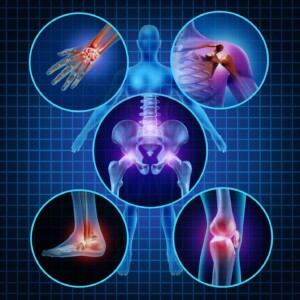 Treatment of joints in Germany is an opportunity to receive effective medical care from world-famous specialists and a real chance to eliminate the disease completely. Germany is one of the top five countries in the field of orthopedics. The authoritative Focus publication regularly includes German hospitals in the TOP lists.
Treatment of joints in Germany is an opportunity to receive effective medical care from world-famous specialists and a real chance to eliminate the disease completely. Germany is one of the top five countries in the field of orthopedics. The authoritative Focus publication regularly includes German hospitals in the TOP lists.
German clinics offer patients with pathologies and injuries of the musculoskeletal system conservative therapy, surgical treatment, and rehabilitation using advanced technologies.
More than 400,000 hip and knee replacement procedures are performed annually in Germany. Patients often turn to German doctors for revision surgeries after unsuccessful interventions in their home country. According to the German Association of Orthopedists, the treatment success rate in leading clinics exceeds 94%.
 Many patients ask why it is worth going to Germany for joint treatment? According to Experts Medical, Germany is one of the best countries for joint treatment. Patients note the advantages of German orthopedics:
Many patients ask why it is worth going to Germany for joint treatment? According to Experts Medical, Germany is one of the best countries for joint treatment. Patients note the advantages of German orthopedics:
In reviews of joint treatment in Germany, patients note the friendly and attentive attitude of the medical staff and the high level of service. They also point to stable prices for joint treatment in Germany, which the Ministry of Health controls.
According to WHO, diseases of the musculoskeletal system are among the most common, including:
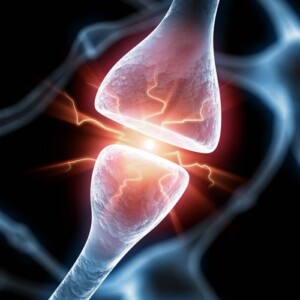 Chronic circulatory disorders occur under the influence of degenerative-dystrophic changes, which is the leading cause of joint destruction.
Chronic circulatory disorders occur under the influence of degenerative-dystrophic changes, which is the leading cause of joint destruction.
Symptoms that require consultation with an orthopedist:
Among the main causes of illness, doctors at the Beta Clinic in Bonn name:
Hereditary factors play an essential role in the occurrence of diseases. Therefore, for people whose relatives suffer from various pathologies, consultation with an orthopedist is extremely necessary.
One of the advantages of German orthopedics is a wide range of research methods using the latest generation medical equipment. In German clinics, patients are given a personal examination plan, which may include: arthroscopy, x-ray examination, CT, MRI, ultrasound, scintigraphy, blood test.
German specialists use the entire arsenal of the most effective techniques for treating joint diseases.
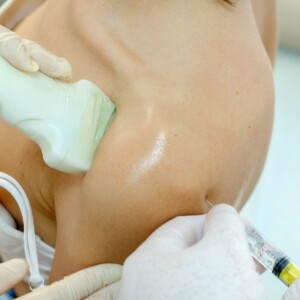 Conservative treatment methods
Conservative treatment methods
Used for moderate pain and minor cartilage damage. In addition to the usual medication and physiotherapy, the following are available in Germany:
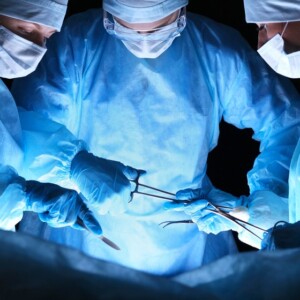 Surgical methods of treatment
Surgical methods of treatment
In German hospitals, foreign patients are offered surgical treatment of the joint with its preservation or replacement. Surgical treatment of joints in Germany includes:
Before the operation, the patient undergoes computer planning. The doctor determines the type of prosthesis and the method of its fixation (cement, cementless, hybrid).
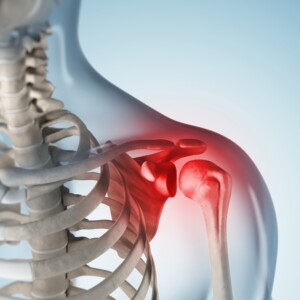 In the early stages of the disease, German doctors managed to completely restore shoulder mobility and eliminate the cause of pain using conservative methods. In later stages, shoulder joint surgical treatment is performed in Germany using advanced minimally invasive techniques. The range of possible interventions includes:
In the early stages of the disease, German doctors managed to completely restore shoulder mobility and eliminate the cause of pain using conservative methods. In later stages, shoulder joint surgical treatment is performed in Germany using advanced minimally invasive techniques. The range of possible interventions includes:
Shoulder joint implantation in Germany is performed using a particular CAT computer system. It provides for an individual selection of a prosthesis that will allow the shoulder to function reliably and durable. The doctor carefully removes damaged cartilage and bones and replaces them with hypoallergenic, high-strength implants. The replacement duration is 30-90 minutes.
One of the leading specialists in treating the shoulder joint in Germany is Professor Christopher Ranger, chief physician of the department of orthopedics at the Northwest Clinic in Frankfurt. Has category D (performs operations of increased complexity). He has over 25 years of experience and is a member of prestigious international communities.
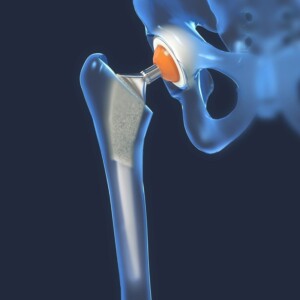 Most often, foreign patients turn to German specialists for hip replacement surgery. It is exposed to heavy loads every day, and damage is widespread. Replacement is indicated for the following pathologies:
Most often, foreign patients turn to German specialists for hip replacement surgery. It is exposed to heavy loads every day, and damage is widespread. Replacement is indicated for the following pathologies:
Treatment of the hip joint in Germany with endoprosthetics is performed mainly using minimally invasive methods using navigation systems.
The University Hospital of Düsseldorf is certified by the German Society of Orthopedic Surgery. Doctors try to preserve most of the patient’s bone and install a minimal implant. For the hip joint, prostheses with a short rod with a ceramic friction pair of cementless fixation are used. Doctors install the implant through a 5-8 cm incision, in contrast to the traditional method, in which the incision reaches 25 cm. This minimizes damage to surrounding tissues and speeds up the rehabilitation period.
The surgical intervention is planned using a 3D visualization system: doctors select the optimal shape and size of the prosthesis to determine its position, taking into account the anatomical structure of the hip.
After the operation, orthopedic rehabilitation is carried out, which allows you to recover and return to full mobility quickly.
Among the advanced surgical techniques that are used in the treatment of the hip joint in Germany:
Treatment of the hip joint is performed at a high level in Germany at the Helios Krefeld clinic. Surgeries for adults and children are performed by leading sports medicine specialist Clayton Craft. The doctor is a world expert in the field of surgery for severe injuries and the author of over 60 scientific papers. Since 2015, he has headed the Department of orthopedics and Traumatology. The clinic has a package offer that includes consultation and surgery with Clayton Craft.
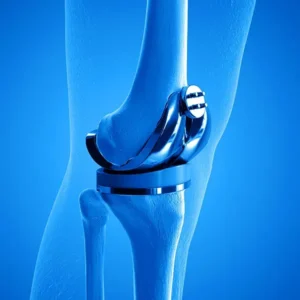 The knee joint is one of the most loaded and susceptible to damage in the human body. Its diseases can lead to pain, inflammation, deformity, and impaired mobility. German orthopedists eliminate deformation processes, treat inflammatory and tumor diseases, and restore mobility and functionality of joints after injuries.
The knee joint is one of the most loaded and susceptible to damage in the human body. Its diseases can lead to pain, inflammation, deformity, and impaired mobility. German orthopedists eliminate deformation processes, treat inflammatory and tumor diseases, and restore mobility and functionality of joints after injuries.
The Schon Clinic in Munich is recognized as one of Germany’s best hospitals for knee joint treatment. Leading German experts in the surgical treatment of shoulder, knee, and ankle joints work here: Sebastian Altenberger Professor Markus Wolter. They do:
Regenerative treatment of the knee joint in Germany using the MIBRAR method. The doctor injects an autoconcentrate from the patient’s cartilage tissue cells to stimulate the growth of new cartilage.
During the replacement, an important point is the accurate installation and fixation of the endoprosthesis. In this case, the knee will not experience stress from body weight in the future, and the prosthesis will not become loose. For this purpose, orthopedic surgeons at the Helios Clinic Berlin-Buch use the latest modification of a computer navigation system. This allows an endoprosthesis to be manufactured, taking into account a person’s anatomical characteristics and installed correctly.
With partial prosthetics, surgeons replace only damaged cartilage tissue. In this way, they preserve the patient’s tissue structures, reduce rehabilitation time, and improve the quality of life for 20-30 years.
Treatment of the knee joint in Germany at the Charite clinic in Berlin is carried out using unique proprietary technologies. The procedure involves the reconstruction and transplantation of bone cartilage and bone tissue. In addition, the clinic performs tendon reconstruction, knee osteotomy, arthroplasty, and other methods to restore function and prevent joint destruction.
The cost of joint treatment in Germany depends on many factors, mainly the degree of damage. Therefore, the doctor can announce the final price only after a thorough examination.
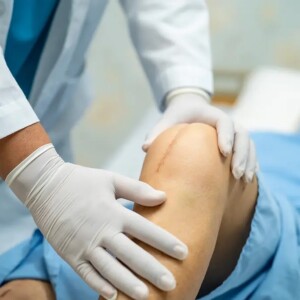 Estimated prices for joint treatment in Germany at the leading hospital in the field of orthopedics, University Hospital in Cologne:
Estimated prices for joint treatment in Germany at the leading hospital in the field of orthopedics, University Hospital in Cologne:
Experts Medical coordinators will provide more complete information about prices and how joints are treated in Germany. You can read patient reviews about joint treatment in Germany and the best doctors on the website. They will also offer the best deals based on the nature of the disease.
Coordinating doctors from the international company Experts Medical will provide free information on all the features of organizing a trip to Germany. In the shortest possible time, medical documents will be prepared for the patient, a clinic and attending physician will be selected, and an online consultation will be organized with him. Consultants will book air tickets and a hotel room and arrange a transfer if necessary.
The Experts Medical team pays great attention to the comfort and safety of its patients, so joint treatment in Germany will take place in the best centers under 24/7 supervision.